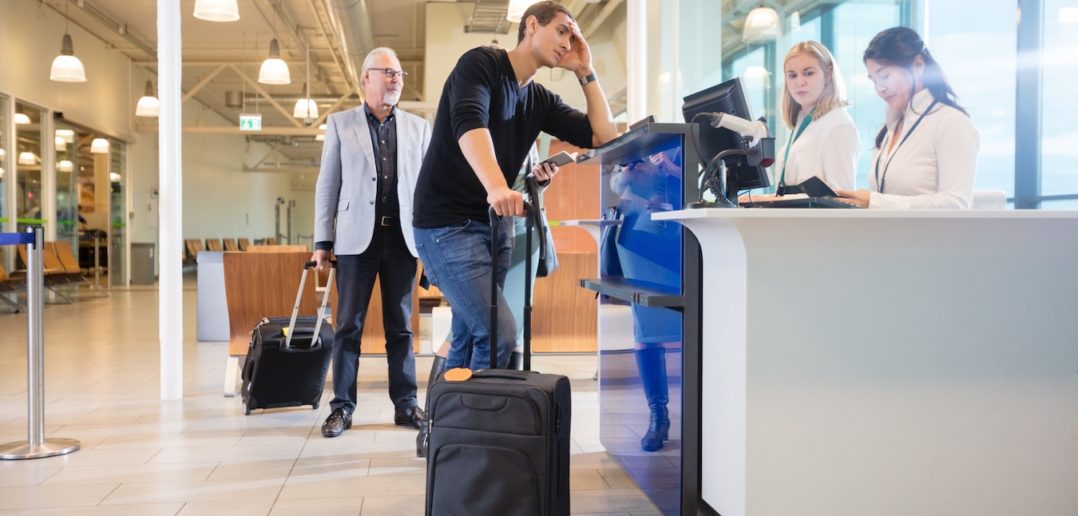Granted, this is a strange scenario, but if you’re a business traveller, it’s really easy to miss your outgoing portion of your flight as you simply get to the airport late or a meeting has been pushed back last minute. It happens.
The first thing you do is look for the next flight to get you to your destination. Quite an easy task if you fly from an airport such as Heathrow as there are regular flights to most major cities during a working day. You often don’t think and simply book a one-way flight. Meeting finished, you head back to the airport ready to check-in for the return part of the original booking (the one where you missed the flight out).
This is where your problems start and we’ve had first-hand experience of this ourselves here at Short Motivation.
If you do not show and fly on the outgoing portion of your flight, your carrier is very likely to cancel the entire booking. That’s right. If you miss your outgoing flight, don’t expect to fly back, despite having paid for your return flight.
This happened to Short Motivation in 2015. Having collated a huge number of Avios points, we booked a flight to Barbados, where the return element was an upgrade to First Class. However, due to issues with the booking and logistics, we were unable to fly on the outgoing Premium Economy part of the flight and had to re-book a one-way ticket (again in Premium Economy). We were promptly told that this would now forfeit that Avois-booked First Class return flight which had used up a huge portion of our points. And there was nothing we could do about it. No compensation, no claim, no return of the points, no flight.
What annoyed us at the time, was that no-one makes you aware of this caveat. When we spoke with British Airways, they told us it’s in the terms & conditions and that there’s nothing they could do. As we missed the outgoing flight, we coudn’t use the return element, losing both the expensive seat and the points. We had to book another return flight ironically on the same plane as the original booking.
Even more galling, when we boarded the flight, we found that British Airways had re-sold our original seat. When we enquired with British Airways, we were told it’s because we’d been a ‘no show’ so the airline is allowed to sell the seat to another customer. Incredible.
The UK consumer group Which? is trying to this practice looking into citing “rip-off” no-show clause which are only buried deep in the carrier’s terms & conditions and is claiming that a lack of clear information could be a breach of consumer law.
Which, like Short Motivation, found that travellers would often only discover their tickets have been cancelled when they arrive at the airport for their return journey and are left with no choice but to buy a seat at an inflated price or pay a penalty fee of up to £2,685 to use their original ticket.
Which? has written to nine airlines telling them their policy potentially breaches section 62 the 2015 Consumer Rights Act, which defines an unfair clause as causing “a significant imbalance in the parties’ rights” to the consumer’s detriment.
Airlines have simply replied, at this stage, that they are aware of the report and are looking in to the situation further.




